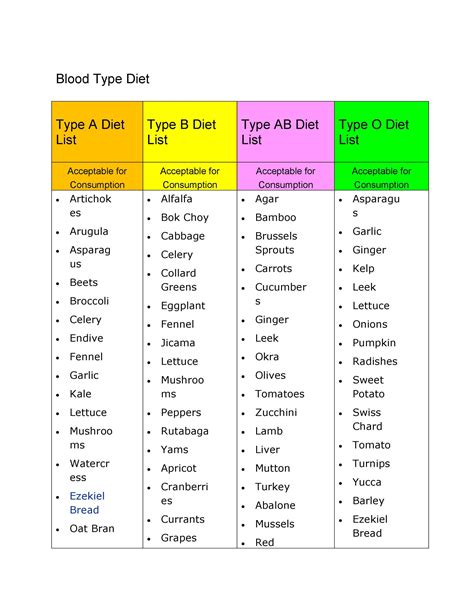Discover the benefits of the Carnivore Diet, learn how to get started and navigate challenges for a successful transition to this unique eating plan.
Understanding the Carnivore Diet
Contents
The Carnivore Diet is a dietary approach that involves consuming only animal products and excludes all plant-based foods. This means individuals following this diet eat meat, fish, eggs, and other animal products, while avoiding fruits, vegetables, grains, and legumes. The premise of the Carnivore Diet is based on the belief that our ancestors primarily consumed animal foods and that this diet can improve overall health and well-being.
Proponents of the Carnivore Diet claim that it can lead to numerous health benefits, including weight loss, improved mental clarity, and better digestion. They argue that by eliminating plant-based foods, which can be difficult for some people to digest, individuals on this diet may experience fewer digestive issues and overall improved gut health.
However, critics of the Carnivore Diet raise concerns about the lack of essential nutrients found in plant-based foods, such as fiber, vitamins, and antioxidants. They also worry about the potential long-term health effects of consuming a diet high in animal products, including an increased risk of heart disease and other chronic conditions.
Ultimately, the Carnivore Diet is a controversial and highly debated dietary approach that has both passionate advocates and vocal critics. It is important for individuals considering this diet to thoroughly research the potential risks and benefits and consult with a healthcare professional before making significant changes to their eating habits.
Benefits of a Carnivore Diet
Switching to a Carnivore Diet can bring about several benefits for many individuals. One of the most commonly cited benefits of this diet is improved mental clarity and focus. Many people report that they feel more alert and experience better concentration after adopting a Carnivore Diet. Additionally, proponents of this diet claim that it can lead to significant weight loss and improved body composition. By eliminating carbohydrates and focusing on animal products, individuals may find it easier to shed excess body fat and maintain a healthier weight.
Furthermore, a Carnivore Diet can lead to reduced inflammation in the body. Many people report feeling less bloated and experiencing fewer aches and pains after transitioning to this way of eating. This may be particularly beneficial for individuals with conditions such as arthritis or other inflammatory disorders. In addition, followers of the Carnivore Diet often note improvements in digestive health. By eliminating potentially irritating foods such as grains and legumes, individuals may experience fewer digestive issues and overall improved gut health.
Another potential benefit of a Carnivore Diet is improved energy levels. Many followers of this way of eating report feeling more energized throughout the day, with fewer energy crashes or periods of lethargy. This may be attributed to the elimination of foods that can cause fluctuations in blood sugar and energy levels, as well as the focus on nutrient-dense animal products. Finally, some individuals may also experience improvements in skin health when following a Carnivore Diet. With the removal of potential allergens and inflammatory foods, some people find that their skin becomes clearer and less prone to issues such as acne or eczema.
In summary, the Carnivore Diet has been associated with several potential benefits, including improved mental clarity, weight management, reduced inflammation, better digestion, enhanced energy levels, and improved skin health. However, it’s important to note that individual experiences with this diet can vary, and it may not be suitable for everyone. As with any dietary change, it’s essential to consult with a healthcare professional before making significant alterations to your eating habits.
Getting Started with the Carnivore Diet
So, you’ve decided to take the plunge and start the Carnivore Diet. Congratulations! This diet focuses on consuming only animal products, such as meat, fish, eggs, and some dairy products. It’s important to understand that this diet is extremely restrictive and requires careful planning to ensure you are getting all the necessary nutrients.
If you’re new to the Carnivore Diet, it’s essential to do your research and educate yourself on the principles of the diet. Understand the philosophy behind it, and familiarize yourself with the types of foods you can and cannot eat. It’s also crucial to consult with a healthcare professional or a nutritionist to make sure this diet is suitable for you.
Once you’ve done your research, it’s time to start making changes to your diet. Begin by gradually reducing your intake of plant-based foods and increasing your consumption of animal products. It’s important to listen to your body and make adjustments as needed, as everyone’s tolerance to certain foods varies.
As with any major dietary change, it’s important to be patient with yourself. Your body will need time to adjust to this new way of eating, so don’t be discouraged if you experience some discomfort or cravings in the beginning. Stay committed, and remember that the ultimate goal is to improve your health and well-being.
Transitioning to a Carnivore Diet
Transitioning to a Carnivore Diet can be a challenging process, especially for those who are used to a diet that includes a variety of foods. However, with proper planning and understanding, it is possible to make a smooth transition to this way of eating.
One of the key steps in transitioning to a Carnivore Diet is to gradually reduce the consumption of non-carnivorous foods. This can be done by slowly eliminating foods such as fruits, vegetables, grains, and processed foods from your diet, and focusing on increasing the intake of animal-based foods.
It’s important to remember that transitioning to a Carnivore Diet is a personal journey, and what works for one person may not work for another. It’s essential to listen to your body and make adjustments as needed to ensure a successful transition.
Additionally, incorporating a variety of nutrient-dense animal-based foods such as meat, fish, eggs, and dairy products can help provide the essential vitamins and minerals needed for a healthy transition to a Carnivore Diet.
Overall, transitioning to a Carnivore Diet requires patience, determination, and a willingness to adapt to a new way of eating. With the right mindset and proper guidance, it is possible to experience the potential benefits of this diet while effectively managing the transition process.
Managing Challenges on a Carnivore Diet
Starting a Carnivore Diet can be a challenging journey, especially for those who are used to a traditional diet that includes a variety of foods. One of the main challenges of this diet is the limited food options, as it mainly consists of animal products such as meat, fish, and eggs. This can make it difficult for individuals to adapt to this new way of eating, particularly if they are accustomed to a more diverse range of foods.
Another challenge of the Carnivore Diet is the social aspect. When dining out or attending social events, it can be challenging to find suitable food options that align with the requirements of the diet. This can make it tough for individuals to maintain the diet when faced with limited options in social settings.
Additionally, some people may experience digestive issues when first transitioning to the Carnivore Diet. This can include symptoms such as bloating, gas, or changes in bowel movements. These challenges can be discouraging for some individuals, making it difficult to stick with the diet long-term.
Lastly, another common challenge of the Carnivore Diet is the potential for nutrient deficiencies. Because the diet eliminates many plant-based foods, there is a risk of not consuming enough essential vitamins and minerals. This can be mitigated through careful meal planning and potentially the use of supplements, but it remains a potential challenge for individuals on the diet.













